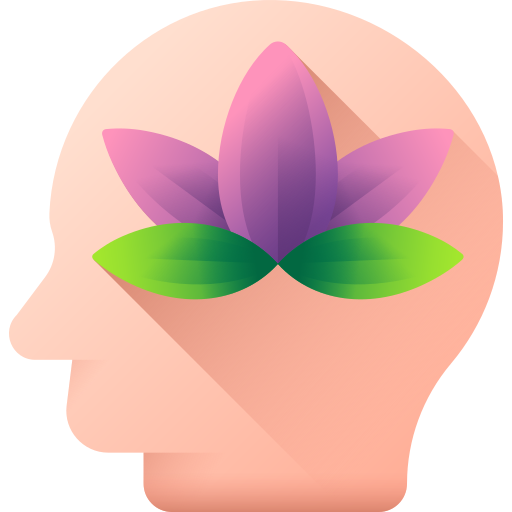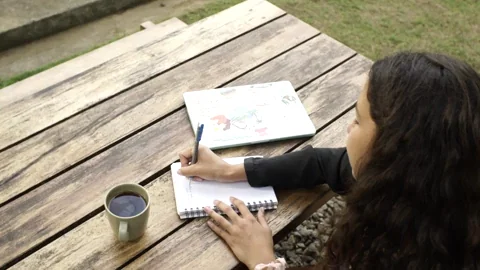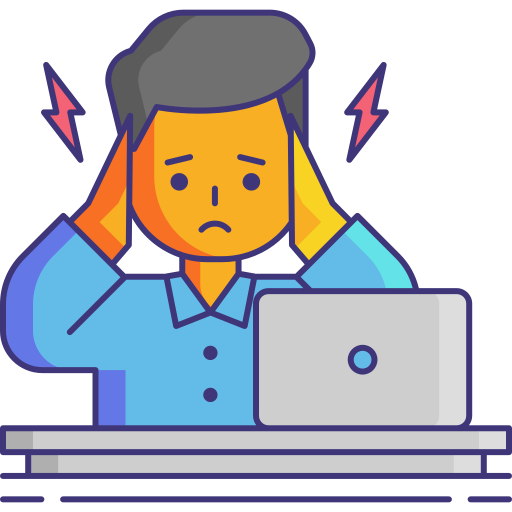Have you ever felt overwhelmed and burned out before the end of a workday?
 According to the American Psychological Association, 77% of workers experience work-related stress, which can lead to low productivity, poor health, and mental exhaustion.
According to the American Psychological Association, 77% of workers experience work-related stress, which can lead to low productivity, poor health, and mental exhaustion.
Practicing mindfulness exercises can help you manage your stress levels by building your awareness of your present state and helping you regulate your emotions. Follow these practices to unwind your mind at work and avoid burnout!
#1: Get Your Steps In

Walking is a simple yet effective mindfulness exercise to clear your mind, slow down, and maintain your physical health. This low-impact exercise is especially beneficial if your job keeps you sitting most of the time because it can help get you moving and away from your desk.
 Why should you do it?
Why should you do it?
According to the American Psychological Association, walking...
Promotes mindfulness by making you aware of your surroundings, such as the sound of nature or experiencing a new environment.
Reduces cortisol levels (a stress hormone) by keeping you active, which may reduce bodily inflammation.
Boosts endorphins (a hormone that increases feelings of well-being) by keeping you away from stress triggers.
 How can you do it?
How can you do it?
Make walking a part of your work routine! Here are some ideas:
Park further away from your workplace to get in a few steps.
During your break, stretch or take a walk outside/around your work area.
Use the stairs instead of the elevator when you have the chance (for a few flights, if nothing else!).
If buying lunch, walk to the restaurant instead of driving or having it delivered.
#2: Mindfully Meditate

Meditation is the practice of calming and focusing the mind. As a mindfulness exercise, it helps you be aware of your emotions, body sensations, and surroundings. Work can be overstimulating with deadlines and a long to-do list, so taking a few minutes to meditate can help you relieve that stress and keep a level head.
 Why should you do it?
Why should you do it?
Headspace, a mental health app, highlights meditation because it...
Promotes compassion, putting less pressure on yourself.
Encourages open-mindedness, making you less reactive to stressors.
Redirects your focus, which can stabilize your breath to calm you down and pay attention to what really matters.
 How can you do it?
How can you do it?
When work becomes overwhelming, focus on your breath and mind.
Follow a guided practice. Find a comfortable position, close your eyes, and focus on your breath and thoughts.
Play peaceful music during your break, relax your mind, and tune into your breath.
Use a meditation app for guided practice (ex. Headspace, Calm). Bonus: A walking meditation can help you stay active while practicing mindfulness.
#3: Journal Your Thoughts

Journaling is a great way to release any thoughts or feelings that you may be bottling up! When work becomes busy with deadlines, meetings, and stress, mindfully transferring your ideas and emotions can help you organize your thoughts and release these stressors.
Doing this mindful exercise means setting an intention (e.g., to get new perspectives) and gaining something from the experience (e.g., feeling relaxed).
 Why should you do it?
Why should you do it?
Positive Psychology's research shows that journaling...
Helps process your emotions by communicating your thoughts into words and pictures.
Boosts self-esteem by making you reflect on your growth.
Can help you discover new goals and solutions by seeing things from a new perspective.
 How can you do it?
How can you do it?
Always have a piece of paper or document on your device available!
Write or draw whatever comes to mind; even scribbles count!
List out things you are grateful for, which can help you focus on the positives.
Brainstorm ideas that can help you solve a problem.
#4: Unplug and Unwind

It can be tempting to turn to your phone or another tab on your computer to distract yourself when you're stressed, but consider disconnecting from your devices for a while!
Spending too much time on a device can cause stress by overstimulating the brain, especially with negativity. Taking a break from a screen can help you focus on the moment and make you more mindful of yourself and your surroundings.
 Why should you do it?
Why should you do it?
According to SummaCare, unplugging from a device can...
Give your brain a break by not overstimulating it, which can bring more clarity and concentration.
Enhance productivity by reducing the number of distractions and stressors to your brain.
Build better relationships with people by encouraging more face-to-face interactions, which can boost endorphins.
 How can you do it?
How can you do it?
Hold yourself accountable and set clear boundaries!
Set a tech-free schedule, such as no browsing the web during breaks or while working.
Silence notifications for non-essential apps, such as social media or entertainment apps.
Enjoy life in real life! Go out for a walk, talk to colleagues, or work on a quick hobby like reading.
Quiz!
 Luis is having a hard day at work. He is so anxious about falling behind on his projects that he has developed a headache.
Luis is having a hard day at work. He is so anxious about falling behind on his projects that he has developed a headache.
Which mindfulness exercises would best help him relieve this stress? Select all that apply:
A. Stepping away from his workspace and stretching a bit
B. Going on his phone for a break
C. Writing down how he feels
D. Closing his eyes and meditating
Quiz
Select all mindfulness exercises that would help Luis relieve this stress:
Take Action
Work can be overwhelming, but practicing mindfulness can help you avoid burnout and keep you happy and healthy! There is always something you can do to practice self-care.
Even five minutes of mindfulness exercises can make a huge difference in your emotions and productivity. Take care of yourself to maximize your personal and work life!
 Practice mindfulness at work to manage your stress!
Practice mindfulness at work to manage your stress!
Your feedback matters to us.
This Byte helped me better understand the topic.
